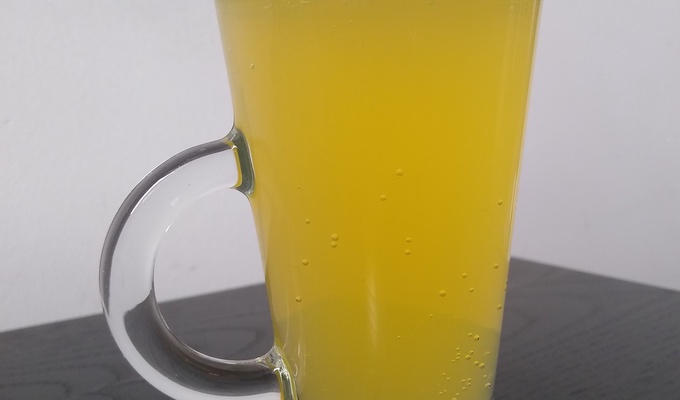Lucozade is a British brand of soft drink manufactured and marketed by the Japanese company Suntory. Created as "Glucozade" in the UK in 1927 by a Newcastle pharmacist, William Walker Hunter, it was acquired by the British pharmaceutical company Beecham's in 1938 and sold as Lucozade, an energy drink for the sick. Its advertising slogan was "Lucozade aids recovery". It was sold mostly in pharmacies up until the 1980s before it was more readily available as a sports drink in shops across the UK.
A glucose and water solution, the product was sold until 1983 as a carbonated, slightly orange-flavoured drink in a glass bottle wrapped in orange cellophane. Pharmacists sold it, children were given it when ill, and hospital visitors would regularly arrive with a bottle. It was rebranded in 1978 as a "pick me up", and as a sports drink in 1983, to associate it with health rather than sickness. The company switched to a plastic bottle and introduced a range of flavours. As of 2016update, a 500 ml bottle contained 62 g (15.5 cubes) of sugar, more than Coca-Cola. In 2017, to avoid sugar tax, the drink was reformulated to contain 22.5 g of sugar per 500 ml of liquid, as well as the artificial sweeteners aspartame and acesulfame K.
The UK’s No. 1 energy drink, it has been exported to Asia and Australasia. In 1989, the Beecham Group merged to form SmithKline Beecham, which further merged in 2000 to form GlaxoSmithKline. In September 2013, GlaxoSmithKline sold Lucozade and another soft drink, Ribena, to the Japanese drinks conglomerate Suntory for £1.35 billion.
